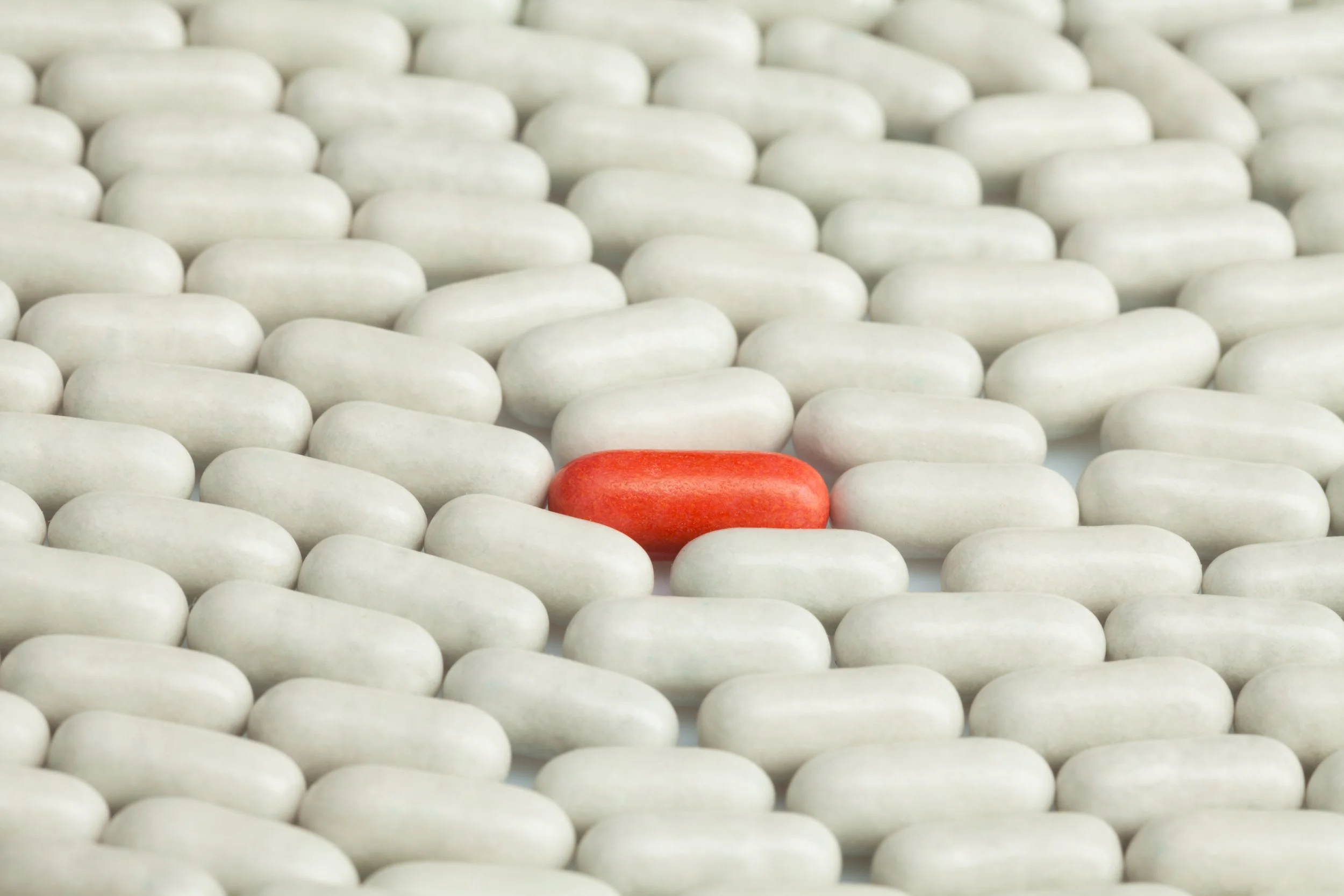Pregabalin Withdrawal
Pregabalin, sold under the brand name Lyrica, is a prescription medication commonly used to treat a variety of conditions, including neuropathic pain, fibromyalgia, and generalized anxiety disorder. While pregabalin can be highly effective for managing these conditions, it also has the potential for dependence and withdrawal if used for extended periods or in higher doses than prescribed. Understanding pregabalin withdrawal, its symptoms, and the available treatment options is essential for anyone who may be struggling with dependence on this medication.
In this article, we will delve into the details of pregabalin withdrawal, including how long the withdrawal process lasts, the side effects associated with withdrawal, and the most effective detox options to safely manage the process.
What is Pregabalin and Why Can It Lead to Withdrawal?
Pregabalin is a central nervous system (CNS) depressant that works by affecting certain chemicals and receptors in the brain, which helps to alleviate pain, reduce anxiety, and prevent seizures. It is often prescribed to individuals with chronic pain, anxiety disorders, or epilepsy. However, like many medications that affect the brain’s chemistry, pregabalin has the potential to cause physical dependence when used for a prolonged period.
When taken for extended periods, the body becomes accustomed to the presence of pregabalin, and this can lead to tolerance (requiring higher doses to achieve the same effect) and dependence (needing the drug to function normally). If an individual suddenly stops taking pregabalin or significantly reduces their dosage, withdrawal symptoms can occur.
How Long Does Lyrica Withdrawal Last?
The duration of pregabalin (Lyrica) withdrawal can vary depending on several factors, including the length of time the drug has been used, the dosage, the individual’s overall health, and whether the withdrawal is managed with medical supervision.
General Timeline of Pregabalin Withdrawal:
Initial Symptoms (1-2 days after stopping): Most individuals will begin to experience withdrawal symptoms within 24-48 hours of their last dose. The first symptoms are typically mild but can worsen over time.
Peak Symptoms (3-7 days): Withdrawal symptoms tend to peak within the first week. This is when individuals may experience the most intense symptoms, including anxiety, insomnia, and physical discomfort.
Resolution of Acute Symptoms (1-2 weeks): For many, the worst of the withdrawal symptoms begin to subside after a week or two, although some lingering effects can last for several weeks.
Post-Acute Withdrawal Syndrome (PAWS): In some cases, individuals may experience a prolonged period of mild symptoms that can last for weeks or even months. This is known as post-acute withdrawal syndrome (PAWS) and can include mood swings, irritability, and difficulty sleeping.
It’s important to note that the process can be highly individual. Some individuals may recover within a couple of weeks, while others may require longer to fully overcome the withdrawal symptoms.
Side Effects of Pregabalin Withdrawal
The side effects of pregabalin withdrawal can be challenging as the body reacts to the absence of the drug it has grown accustomed to. Common withdrawal symptoms include:
Anxiety: One of the most common withdrawal symptoms, pregabalin, is often prescribed to treat anxiety disorders. Without medication, anxiety can return or even worsen.
Insomnia: Pregabalin can have a sedative effect, making it easier for users to fall asleep. When the medication is discontinued, individuals may have trouble sleeping or insomnia.
Depression: Mood changes, including feelings of sadness or depression, can occur during withdrawal as the brain adjusts to the lack of pregabalin.
Headaches: Many individuals report experiencing headaches during pregabalin withdrawal, which can vary from mild to severe.
Sweating: Excessive sweating or night sweats can occur as the body goes through the process of detoxification.
Nausea and Vomiting: Gastrointestinal symptoms like nausea and vomiting are common during the early stages of withdrawal.
Tremors: Some individuals may experience shaking or tremors as a physical manifestation of withdrawal.
Irritability and Mood Swings: As the body adapts to the lack of pregabalin, individuals may experience heightened irritability, anger, or mood swings.
Fatigue and Lethargy: Despite insomnia, some people may feel overwhelmingly tired during the withdrawal process, often due to the body’s need to recalibrate itself.
Seizures: In severe cases of pregabalin withdrawal, especially when the medication has been used in high doses for a long time, seizures can occur. This is why it is important to undergo detoxification under medical supervision.
While these symptoms are common, they are typically temporary and will subside as the body adjusts to functioning without pregabalin. However, the severity of symptoms can vary widely from person to person.
Pregabalin Detox
The detoxification process for pregabalin should always be done under the supervision of a healthcare professional. Detoxing on your own can be dangerous, especially for individuals who have been taking pregabalin for an extended period or at high doses.
Tapering: One of the safest methods for discontinuing pregabalin is to gradually reduce the dosage over time, a process known as tapering. Tapering helps the body adjust slowly to the decreasing levels of the drug, which can minimize withdrawal symptoms and reduce the risk of complications.
Medical Supervision: Detoxing from pregabalin under medical supervision is recommended to ensure safety. A healthcare professional can monitor vital signs, manage withdrawal symptoms, and provide medications to alleviate discomfort. In some cases, medications such as benzodiazepines may be used to help manage anxiety or insomnia during the withdrawal process.
Inpatient Treatment: For individuals with severe dependence or those who have a history of withdrawal complications, inpatient treatment may be necessary. Inpatient rehab centres provide a structured and supportive environment where individuals can undergo detox safely and begin their journey toward recovery.
Outpatient Treatment: For individuals with mild dependence, outpatient treatment may be an option. This allows individuals to continue their daily routines while attending regular therapy sessions and receiving medical care.
Psychotherapy and Support Groups: Once the detoxification process is complete, ongoing treatment such as cognitive-behavioral therapy (CBT) and support groups can help individuals address the psychological aspects of addiction and reduce the risk of relapse.
Managing Pregabalin Withdrawal
During the withdrawal process, it’s important to take steps to support your physical and emotional well-being. Here are a few tips to help manage the symptoms of pregabalin withdrawal:
Stay Hydrated: Withdrawal can cause nausea, sweating, and vomiting, which can lead to dehydration. Drinking plenty of water and staying hydrated is essential for helping the body detoxify and recover.
Eat Nutritious Foods: Eating a balanced diet full of fruits, vegetables, lean proteins, and whole grains can provide the body with the nutrients it needs during withdrawal. Avoid processed foods and excess sugar, which can exacerbate symptoms.
Exercise: While exercise may feel like the last thing you want to do during withdrawal, light physical activity such as walking or stretching can help reduce anxiety, improve mood, and promote better sleep.
Practice Relaxation Techniques: Meditation, deep breathing exercises, and mindfulness techniques can help manage anxiety and stress during withdrawal. These practices can also help you sleep better and reduce irritability.
Seek Support: Having a strong support system is crucial during withdrawal. Consider joining a support group or working with a therapist to manage the emotional challenges that come with detoxing from pregabalin.
Conclusion
Pregabalin withdrawal is a challenging process that requires careful management and support. The symptoms can range from mild to severe, and the duration of withdrawal varies depending on several factors. If you or someone you know is going through pregabalin withdrawal, it is essential to seek professional help to ensure the process is safe and manageable.
With the right medical supervision, support, and commitment, individuals can successfully detox from pregabalin and begin their journey to recovery. Although the withdrawal process may be difficult, it is a necessary step toward regaining control over one’s health and well-being. If you are struggling with pregabalin dependence, don’t hesitate to reach out for help today.
Q&A
Q1: How long does Lyrica withdrawal last?
The duration of Lyrica (pregabalin) withdrawal can vary, but most individuals begin to feel symptoms within 24-48 hours after stopping the medication. The acute withdrawal symptoms typically peak within the first week and subside after 1-2 weeks. Some individuals may experience lingering symptoms, such as mood swings or insomnia, for several weeks.
Q2: What are the side effects of pregabalin withdrawal?
Side effects of pregabalin withdrawal include anxiety, insomnia, depression, headaches, sweating, nausea, irritability, fatigue, and tremors. In severe cases, seizures can occur, making it essential to undergo detoxification under medical supervision.
Q3: What are Lyrica's withdrawal symptoms?
The withdrawal symptoms of Lyrica (pregabalin) include anxiety, insomnia, nausea, sweating, irritability, depression, headaches, and muscle pain. Some individuals may also experience tremors, fatigue, and mood swings.
Q4: How is pregabalin detox managed?
Pregabalin detox is typically managed through a gradual tapering process, reducing the dosage of the drug over time to minimize withdrawal symptoms. Detox may be done under medical supervision, either through outpatient care or inpatient treatment, depending on the severity of the dependence.
Q5: Can I manage pregabalin withdrawal at home?
While it is possible to manage mild pregabalin withdrawal at home, it is recommended to undergo detox under medical supervision. This ensures safety, as withdrawal can be intense, and complications such as seizures can occur. A healthcare professional can guide the process and provide necessary medications for relief.


